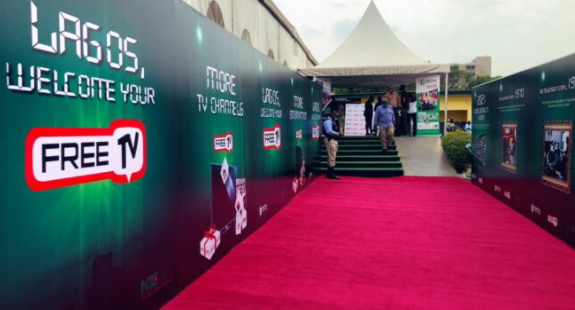Timothy Agbo, a lawyer, has called on the house of representatives to revisit its 2017 report which uncovered “underhand dealings” in the implementation of Nigeria’s digital switchover (DSO) programme.
A digital switchover is a migration from analogue television broadcasting technology to the digital system.
TheCable had recently reported that the DSO television platform, branded as FreeTV, is bedevilled with service delivery challenges.
Subscribers often take to social media to complain of reactivation issues, faulty decoders, insufficient number of stations, unavailable/unresponsive customer care lines, and poor signal.
In a statement made available to TheCable Lifestyle on Wednesday, Agbo said the DSO initiative will only amount to a waste of time and resources without appropriate scrutiny of its implementation.
The UK-based lawyer said in 2017, the house ad hoc committee on DSO investigated the programme’s implementation and found numerous procurement infractions but nothing was done.
“I recall that the report of the committee, headed by Hon. Sunday Katung, was adopted by the House, which observed procurement discrepancies, underhand dealings in equipment supply and injudicious use of funds provided for the programme among others,” he said.
“Despite the observations, nothing was done. For the country to reap adequate dividends on her investments in the programme, there is a need for the House to take a look at the current status of funds, income and expenditure as utilized and generated by the National Broadcasting Commission (NBC), the Ministry of Information and other government agencies involved the digital switchover programme.”
‘NBC BREACHED PROCUREMENT ACT’
According to Agbo, the house committee also observed that “the NBC awarded contracts for middleware payment and encryption of the national Set-Top-Box (STB) system among other related services eight months before it was registered”.
The legal practitioner argued that the development was in breach of the Procurement Act and other extant legislations.
“Section 5.3 of the House report showed that the company, Inview Technology, registered in the United Kingdom, was contracted to provide the middleware payment and encryption for the national STB system and other complimentary services,” he added.
“This arrangement was not envisaged in the Federal Government DSO Whitepaper, as there are many indigenous firms with the same expertise. The committee also discovered that the company was not incorporated before the contract award, contrary to Procurement Act.”
Citing a section of the act referenced by the house committee at the time, Agbo said: “NBC contracted Inview Technology Nigeria Ltd on 18 March, 2015 to provide the middleware, payment and encryption for the national common STB software and integrated digital TV broadcast control and other complimentary services.
“The company, previously known as Inview Technology Limited and registered on 2 Dec, 2014 was changed to Inview Technology Nigeria Limited with the special resolution by the company on 21 September, 2015.
“It registered with the Corporate Affairs Commission (CAC) on 8 December 2015. Thus, the company was registered eight (8) months after the contract was awarded to it contrary to provisions of the Procurement Act.”
INABILITY TO PROVIDE NETWORK COVERAGE
The lawyer also noted that the house questioned the integrity of the facilities of the two licensed signal distributors, which he said have been unable to provide the expected 80 percent network coverage.
He added that at the time, Ehiozuwa Agbonayinma, a member of the committee, had demanded a probe of the link between ITS, Pinnacle and Lai Mohammed, minister of information, for “possible conferment of undue advantage”.
“The inability of the licensed distributors to provide the envisaged network coverage up to now shows that they are not capable of the role assigned to them,” Agbo added.
The lawyer further noted that “the committee, in its report, said that one of the two signal distributors, Integrated Television Services (ITS), which transmits from Jos, Plateau State, did not have signal distribution license but was allowed to operate and had not paid any license fees to NBC despite being funded by the government.
“It also described the service of the other, Pinnacle Communications Limited, which transmits from Abuja, as sub-par, saying the equipment deployed were outmoded and had the challenge of non-coverage of the entire Federal Capital Territory as envisaged.”
Copyright 2024 TheCable. All rights reserved. This material, and other digital content on this website, may not be reproduced, published, broadcast, rewritten or redistributed in whole or in part without prior express written permission from TheCable.
Follow us on twitter @Thecablestyle

